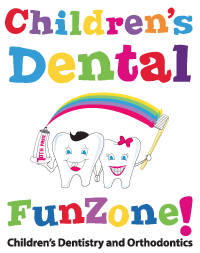Common Dental Issues in Kids and How to Prevent Them
Maintaining good oral health is essential for children, not only to ensure a bright, healthy smile but also to support overall growth and well-being. Unfortunately, many children experience dental problems early in life, which can lead to pain, infections, and difficulty eating or speaking. According to KFF, nearly one-fourth of children living in households with incomes below 100% of the federal poverty level have one or more oral health problems. Understanding the most common dental issues and how to prevent them can help parents safeguard their child's oral health from an early age. A local pediatric dentist plays a crucial role in this process, offering guidance and professional care tailored to children's unique dental needs.
Tooth Decay and Cavities
Tooth decay, also known as dental caries, is one of the most common dental problems among children. It occurs when plaque, a sticky layer of bacteria, interacts with sugars in food, producing acids that gradually break down tooth enamel. Children are especially vulnerable because their enamel is thinner than adults, and their eating habits often include sugary snacks and drinks. Cavities can develop quickly in young teeth, leading to pain, infections, and difficulty eating or speaking. In severe cases, untreated decay can affect the development of permanent teeth.
Preventing tooth decay begins with establishing a daily oral hygiene routine. Children should brush their teeth at least twice a day with fluoride toothpaste and be taught proper flossing techniques to reach between teeth. Limiting sugary foods and encouraging healthier alternatives such as fruits, vegetables, and water can reduce the risk of cavities. Regular visits to a local pediatric dentist allow for early detection of decay and provide opportunities for preventive treatments, such as dental sealants, which protect molars from cavities. Additionally, teaching children the importance of brushing after meals and rinsing their mouths when water is not immediately available helps instill lifelong healthy habits.
Gum Disease
Gum disease, or pediatric gingivitis, is an inflammation of the gums caused by bacteria and plaque buildup along the gumline. While gum disease is often associated with adults, children are also susceptible if oral hygiene is not properly maintained. Symptoms may include red or swollen gums, bleeding while brushing, and persistent bad breath. If left untreated, gingivitis can progress into more serious periodontal issues, potentially affecting permanent teeth and overall oral health.
Preventing gum disease involves consistent oral care and regular professional monitoring. Brushing for at least two minutes twice daily and supervised flossing every day help remove plaque effectively. Maintaining a balanced diet with limited sugary foods supports gum health. Professional dental cleanings by a pediatric dentist remove plaque and tartar that brushing and flossing alone cannot address. Parents should also pay attention to early warning signs of gum irritation and encourage children to report discomfort, allowing timely intervention. Early detection and care prevent complications and establish a foundation for healthy gums that can last a lifetime.
Tooth Sensitivity and Enamel Erosion
Tooth sensitivity occurs when the enamel wears away, exposing the dentin beneath. In children, enamel erosion may result from acidic foods and drinks, aggressive brushing, or medical conditions such as acid reflux. Sensitive teeth can make eating hot, cold, or sweet foods uncomfortable and may affect a child’s willingness to maintain proper oral care.
Parents can reduce the risk of enamel erosion by moderating acidic foods and beverages, encouraging children to rinse with water after consuming acidic items, and teaching gentle brushing with a soft-bristled toothbrush. Regular dental visits allow a pediatric dentist to monitor enamel health and provide specialized toothpaste if needed. Additionally, monitoring any changes in tooth color, texture, or discomfort can help parents address sensitivity early, preventing more extensive damage and discomfort for the child.
Misaligned or Crooked Teeth
Misaligned teeth, crowding, or bite problems often become apparent as children's permanent teeth grow in. These issues may affect chewing, speech, and self-confidence. Certain habits, such as prolonged thumb-sucking or extended pacifier use, can contribute to misalignment. While some misalignment is hereditary, early detection can prevent more severe complications.
Scheduling an orthodontic evaluation with a local pediatric dentist or orthodontist around age seven is recommended to identify potential alignment problems. Interceptive treatments, such as partial braces or space maintainers, can guide teeth into proper alignment and often make later treatment simpler and more effective. Parents can also help by gently discouraging prolonged thumb-sucking or pacifier use and reinforcing positive oral habits. Addressing misalignment early not only improves function and aesthetics but can also prevent more extensive orthodontic work in adolescence.
Dental Injuries and Trauma
Children are naturally active, and falls or accidents can lead to chipped, cracked, or knocked-out teeth. Dental trauma can be painful and, if untreated, may cause infection, misalignment, or permanent damage. Quick and appropriate care is essential to protect affected teeth and maintain overall oral health, especially in young children whose teeth and jaws are still developing.
Parents can minimize the risk of dental injuries by encouraging children to wear properly fitted mouthguards during sports or active play, supervising younger children during high-risk activities, and childproofing play areas when possible. In the event of an accident, contacting a local pediatric dentist immediately ensures children receive the correct treatment, whether it involves repairing a chipped tooth, stabilizing a loose tooth, or guiding parents on how to save a knocked-out tooth.
Following up after dental trauma is equally important, as children may require ongoing monitoring to ensure teeth heal correctly, maintain proper alignment, and avoid long-term complications. Educating children on safe play habits and the importance of dental care can also help prevent future injuries.
Thumb-Sucking and Pacifier Use
Thumb-sucking and pacifier use are normal comfort behaviors in young children, but when prolonged beyond age three or four, they can negatively affect oral development. Extended habits may cause bite problems, misaligned teeth, and changes to the roof of the mouth, which can affect chewing, speech, and overall dental alignment over time.
Parents can help children transition away from these habits by offering positive reinforcement, setting gentle limits, and providing alternative comfort objects like blankets or stuffed animals. Consistently praising progress and offering encouragement can make the transition smoother. If the habit persists, a local pediatric dentist can provide guidance or specialized appliances to gradually correct bite issues.
Addressing these habits early ensures proper oral development and reduces the likelihood of requiring extensive orthodontic treatment later, while helping children develop healthy oral routines that support lifelong dental health.
Dental health is a critical component of a child’s overall well-being, affecting their ability to eat, speak, and develop self-confidence. Common dental challenges, including cavities, gum disease, enamel erosion, misalignment, dental trauma, and prolonged habits like thumb-sucking, can all impact oral health if not properly managed. By fostering good oral hygiene routines, promoting a balanced diet, and scheduling regular visits with a local pediatric dentist, parents can help their children maintain healthy teeth and gums throughout childhood and beyond.
Children's Dental FunZone is committed to providing positive, educational dental experiences that focus on prevention, early intervention, and long-term oral health. By understanding the common dental issues children face and taking proactive steps, parents can ensure their children enjoy strong, healthy, and confident smiles for years to come. For a
local pediatric dentist you can count on, contact us at Children's Dental FunZone today.





